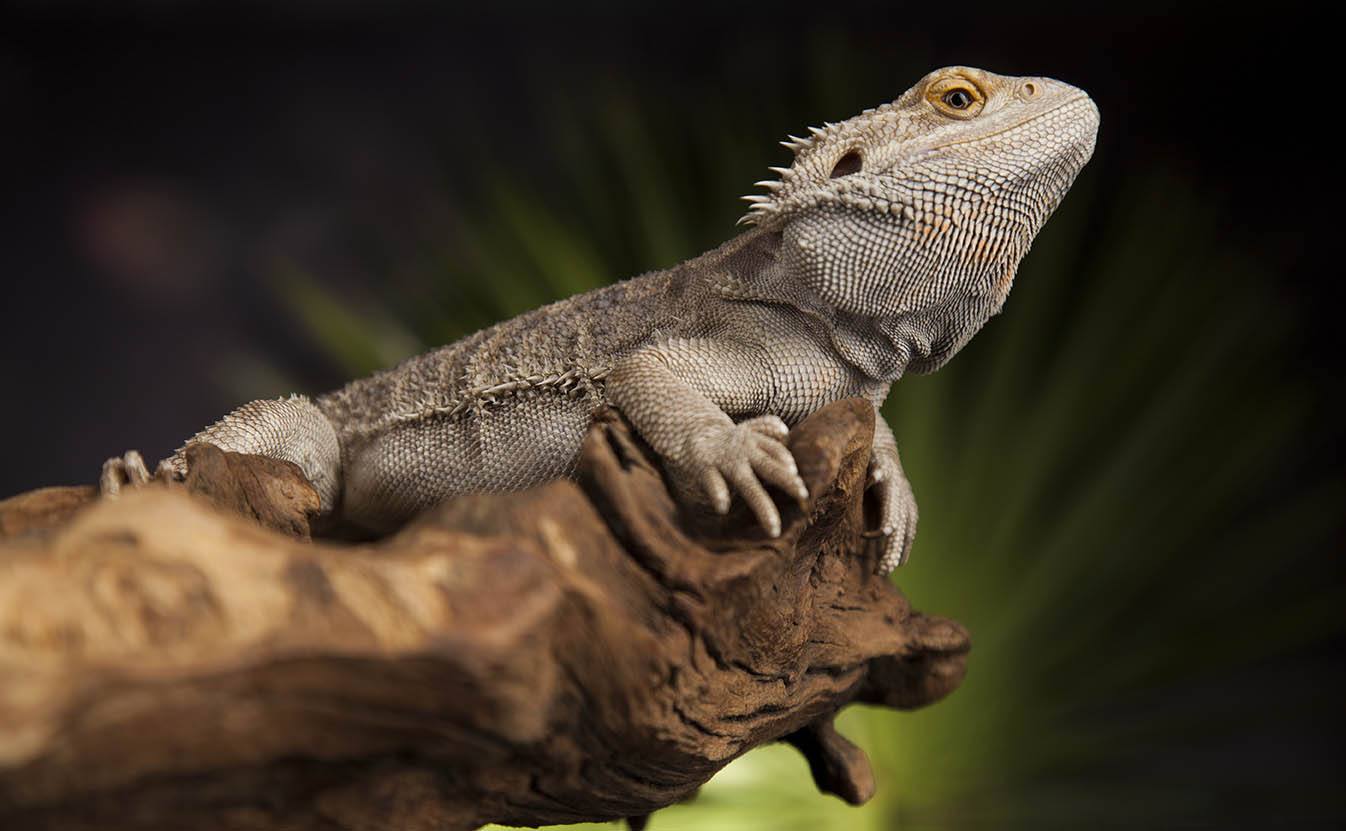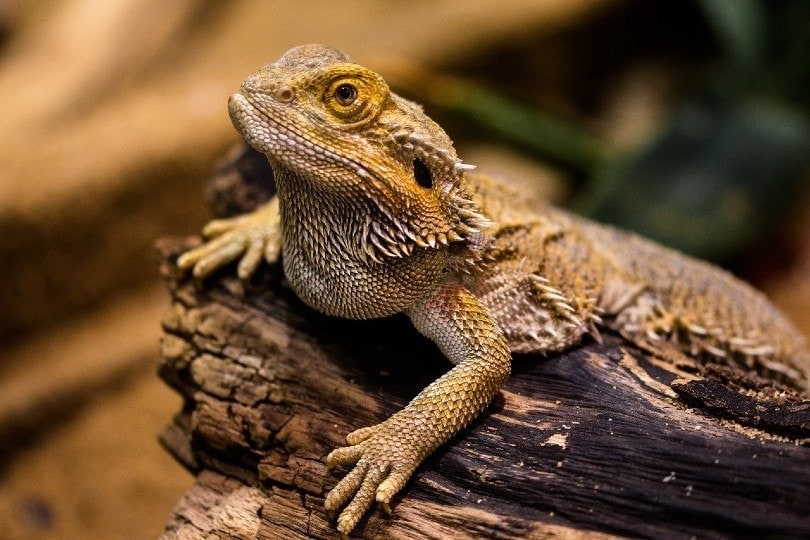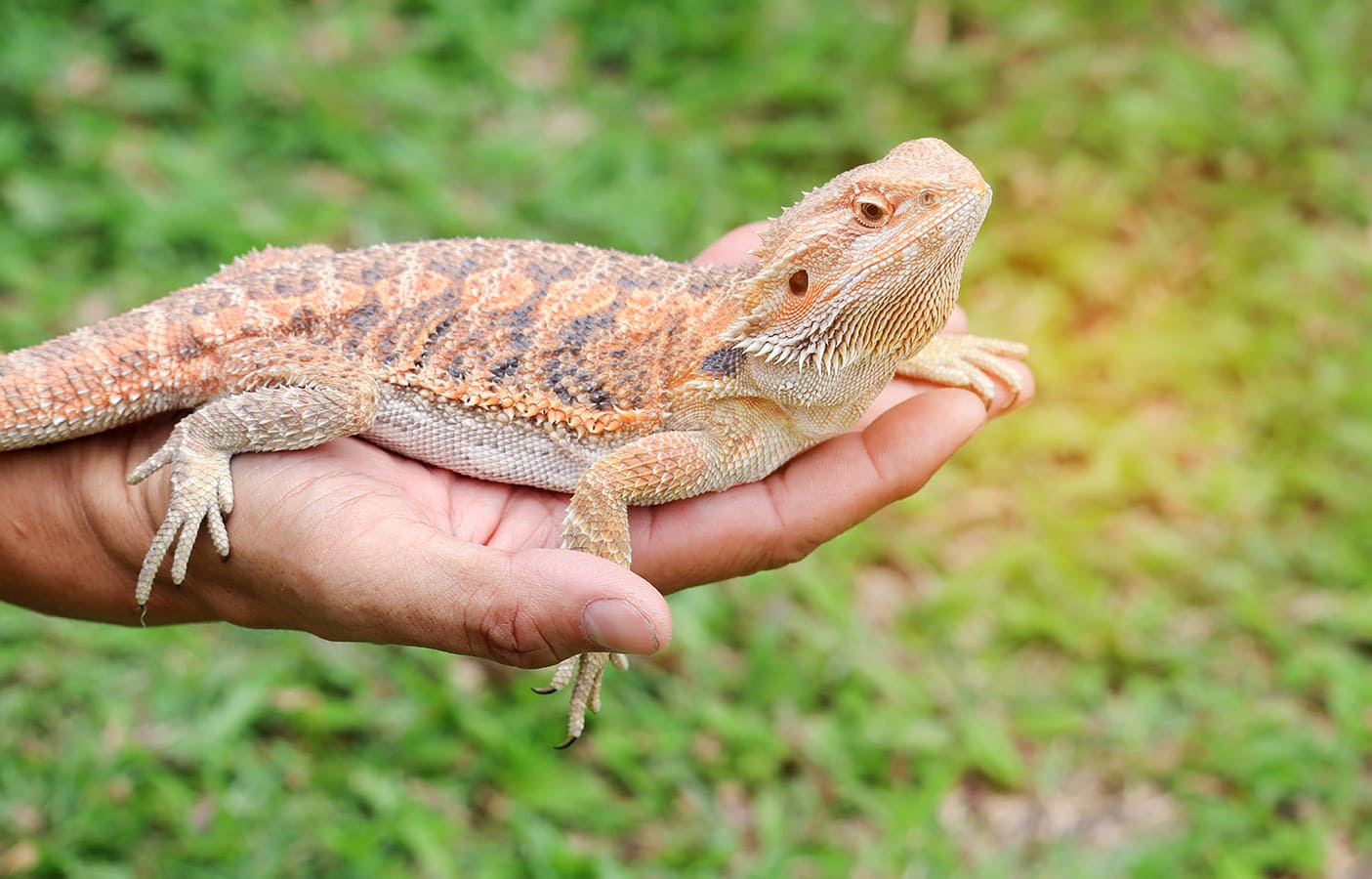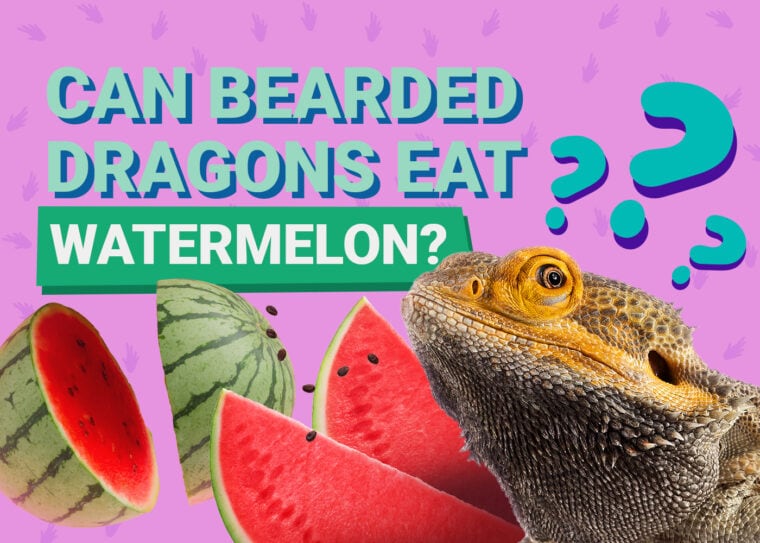
If you’re looking for something tasty to add to your bearded dragon’s diet, perhaps your eye has fallen on the watermelon that you just picked up. But can bearded dragons eat watermelon safely? If so, how much is okay to give them? In brief, bearded dragons can eat a small amount of watermelon but only occasionally. This isn’t a fruit to add to their regular diet, but a tiny piece every now and again is just fine.
What’s Good About Watermelon?
Watermelon, as the name suggests, contains a large amount of water. This means it can be a good choice for a hot summer’s day when you want to help your bearded dragon stay well-hydrated. That said, there are other fruits and vegetables with higher amounts of water compared to watermelon!1
The various vitamins and minerals found in watermelon can be used by bearded dragons for just about everything: immune system function, gut motility, vision, growth, and metabolism. However, there are other, healthier food alternatives that offer similar benefits.
Watermelon is low in oxalates and contains minimal numbers of goitrogens. Having these compounds in low quantities is a desired trait of foods for bearded dragons. It definitely improves its viability ranking for your beloved pet.
Most bearded dragons also love the taste of watermelon, possibly because it contains sugar. This means you can use watermelon to tempt your bearded dragon to eat if they’ve lost their appetite for any reason. Still, it’s important to note that their taste buds aren’t as acute as ours, so while anecdotal evidence suggests that they do enjoy watermelon, it might not be solely because of its taste.

What’s Bad About Watermelon?
The sugar in watermelons might make them taste great to your beardie, but it also means they can easily consume too much sugar if they eat the fruit too often. Too much sugar can lead to your bearded dragon becoming overweight. The sugar in fruits may also be a contributing factor to dental disease.
While it does contain beneficial vitamins and minerals, watermelon is not nutritionally dense. While your bearded dragon might like the taste, watermelon doesn’t provide them with many benefits in terms of nutrition.
Watermelon also contains phosphorus and calcium. When looking at these minerals in a bearded dragon’s diet, it’s important to assess their ratio. For healthy adult bearded dragons in maintenance, their diet should have a calcium-to-phosphorus ratio of anywhere between 1.5:1 and 2:1. This means the calcium should be around twice as much as the phosphorus. The recommended ratio for juveniles is around 2:1, and dragons that are breeding (especially females) require a much higher calcium intake compared to adults in maintenance.
In watermelon, the ratio of calcium to phosphorus isn’t ideal. Phosphorus balance in the body requires that it be in the correct proportion with calcium. Phosphorus naturally binds to calcium within the animal’s body. When a bearded dragon is fed high amounts of phosphorus and inadequate amounts of calcium, their body responds by pulling calcium out from the bones to restore the proper levels of minerals and reduce the excess phosphorus in the bloodstream. Over time, the loss of calcium from bone mass can make the bones brittle and weak, leading to a condition called metabolic bone disease.
An inappropriate ratio of calcium to phosphorus is undesirable for the long-term health of a bearded dragon because it may predispose them to kidney or parathyroid issues. Therefore, watermelon should be offered sparingly to your bearded dragon.
How to Feed Watermelon to Your Bearded Dragon
If possible, choose watermelons that haven’t been sprayed with herbicides or pesticides, though to err on the side of caution, you should always thoroughly wash any fruit before serving it to your bearded dragon. Slice the watermelon into chunks and remove the rind and seeds. We also recommend removing the thinner white rind.
Chop the watermelon chunks into smaller pieces, around the size of a teaspoon or smaller. Start by feeding your bearded dragon only a small amount of watermelon, about ¼ of a teaspoon. After they’ve eaten it, watch their behavior carefully over the next 24–48 hours to check that they don’t have an adverse reaction.
If they develop diarrhea or lethargy or lose their appetite for their other food, you probably should not feed them watermelon again. If they seem to enjoy it, you can continue feeding it as an occasional supplementary treat.
Make sure to check your bearded dragon’s cage every day, and remove any fresh fruits and vegetables that they haven’t yet eaten.
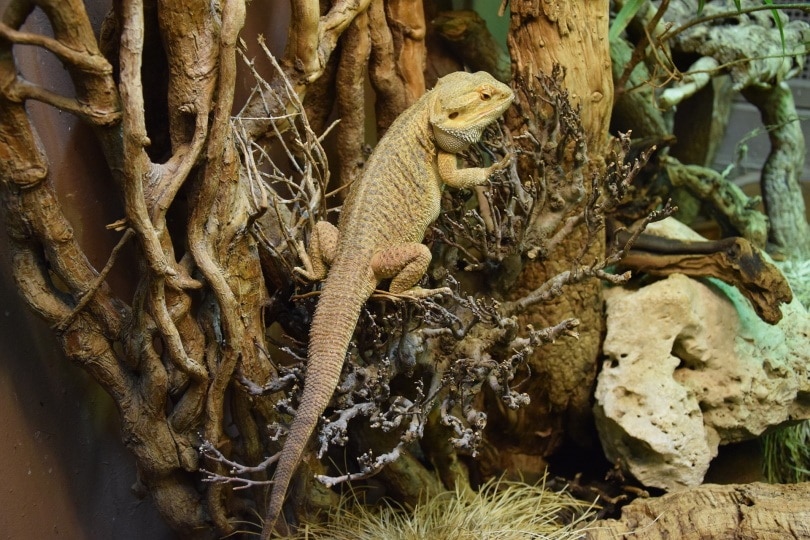
FAQs
What’s Better, Seedless or Seeded Watermelon?
Either is fine, but if your watermelon does have seeds, you’ll need to remove them before feeding a piece to your bearded dragon. If swallowed, the seeds can become stuck in your beardie’s intestines, possibly causing an impaction.
Can Bearded Dragons Eat Watermelon Rind?
While the rind of a watermelon isn’t toxic, it is best to not feed it to your bearded dragon. The tough rind of a watermelon can be difficult for your bearded dragon to chew. If they do manage to bite off a piece, they may swallow it whole. This can potentially cause a blockage in their gastrointestinal tract.
How Much Watermelon Can a Bearded Dragon Have?
Bearded dragons can have a small piece of watermelon, around the size of a teaspoon, once a month. It is important to offer them a high variety of fruits as treats instead of just sticking to watermelon.

Wrapping Up
Bearded dragons usually love the taste of watermelon, but it should only ever be fed to them as an occasional treat. It’s high in sugar and can also disrupt the delicate calcium-to-phosphorus ratio in your beardie’s system. If watermelon is fed to them too often, it can lead to metabolic bone disease.
Make sure to remove all the rind and seeds before feeding small pieces to your bearded dragon. A few small pieces once a month are all that you should be feeding them. Watch for signs that watermelon may not agree with your bearded dragon’s digestive system, and stop feeding it to them if they develop diarrhea or lethargy.
If you’re unsure, ask the advice of your vet, and always provide other healthier fruits and vegetables first.
- See also: DIY Horse Jumps
Featured Image: Ulrike Leone, Pixabay


